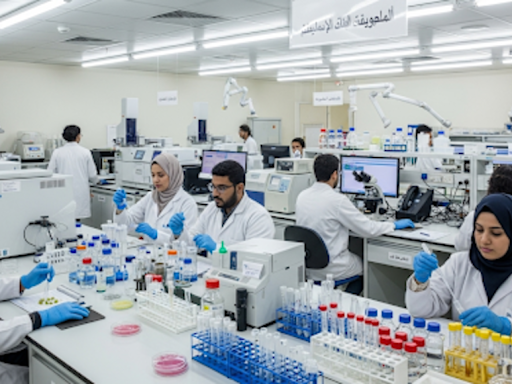Key Development
Saudi Arabia’s Ministry of Municipal and Rural Affairs and Housing has unveiled a comprehensive set of regulations for private food laboratories, introducing strict spatial, technical, and aesthetic standards. These new rules aim to enhance food safety, align with urban development goals, and create a more attractive environment for investment in the food and health sectors.
Key Highlights of the Regulations
A summary of the main requirements and standards introduced to enhance food lab safety, location, and operational quality.
The regulations apply to all private food laboratories conducting food testing and measurements, whether independently or as part of a conformity assessment body. Government-run facilities, such as those operated by the Saudi Standards, Metrology, and Quality Organisation, are exempt from these requirements.
Spatial and Technical Standards
To ensure integration with urban planning and minimise environmental and visual disruptions, food laboratories must be located within officially designated urban areas. Key requirements include:
- A minimum area of 100 square meters for all laboratory facilities, whether standalone or within larger buildings.
- Dedicated parking spaces: One parking spot is required for every 25 square meters of lab space in standalone facilities, to improve accessibility and ease urban traffic flow.
Aesthetic and Safety Requirements
To uphold safety and visual standards, the regulations prohibit:
- Visible external electrical wiring;
- Exposed air-conditioning units on facades or rooftops.
These measures aim to maintain a clean, professional appearance and reinforce high safety standards.
Objectives of the Initiative
The new framework is part of a broader strategy to:
- Improve the urban environment and quality of life;
- Encourage investment in food-related and health industries.
- Ensure that food testing facilities meet modern public health and urban development standards.
By introducing these regulations, the Ministry seeks to position Saudi Arabia as a regional leader in food safety and laboratory excellence. While private sector labs must now meet enhanced operational and visual criteria, government labs remain under direct oversight, ensuring both flexibility and control in the Kingdom’s regulatory ecosystem
Source: The Times of India
 Food Manifest
Food Manifest 


















